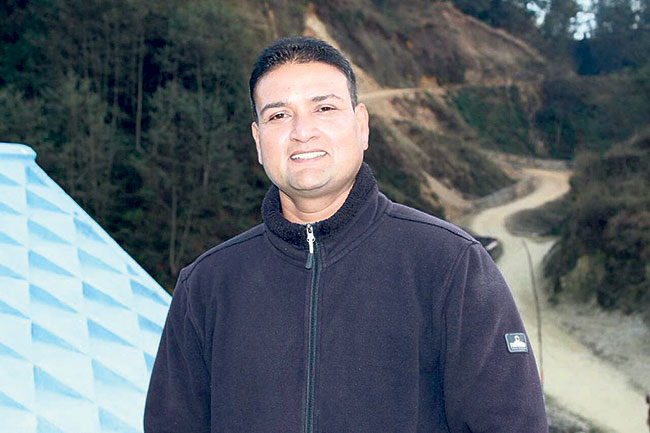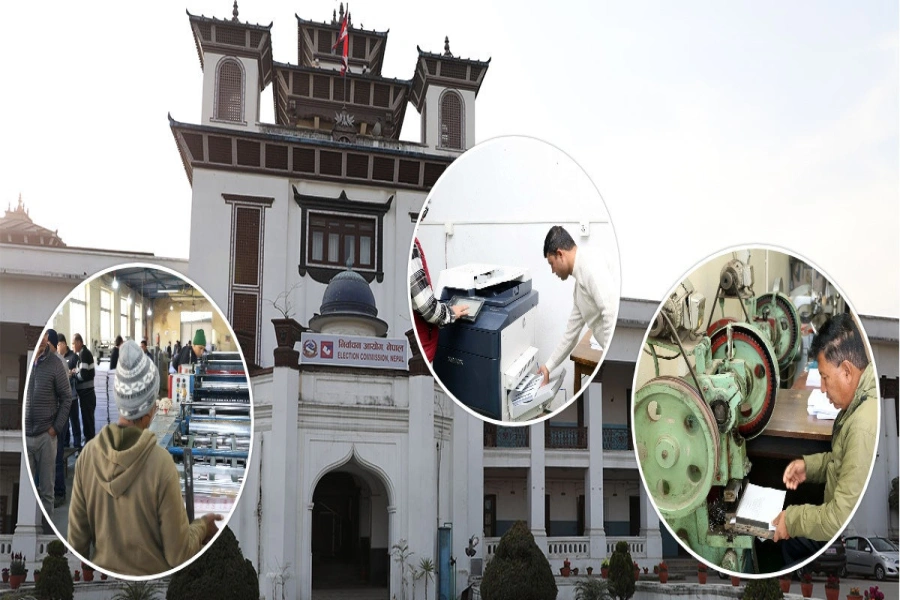This not only affects memories but all other mental faculties like planning, language, daily activities. Dementia occurs due to the shrinking of the brain size and progressive death of brain cells due to abnormal accumulation of certain harmful proteins, as they grow older.

Incident one: On a cold winter morning, a naked old man stares at a stack of warm clothes but doesn’t have any idea how to wear them or what they are there for.
Incident two: “I’m worried about my husband’s growing erratic behavior,” says Mrs Gyawali. “He is clumsy like a toddler while getting dressed and I always have to help him get his shirt buttons right. Just a day before he asked if I wanted a cup tea and when I said yes he rushed to the kitchen. He did not return from the kitchen for half an hour and when I entered the kitchen to inquire, he was standing there confused. To my surprise, the kettle was there but the gas wasn’t turned on. He was also not aware that he had entered the kitchen to make tea.”
Incident three: An old aged father goes for evening walk and doesn’t return home. After a lot of frantic telephone calls, family members call the police to report him missing. After three days, the police find him sitting alone in a park. When asked about his address or how he ended up in the park, he sounds confused. After a positive identification, the police hand him over to his family.
These incidents are true. Making a cup of tea, putting on warm clothes in winter or fixing shirt buttons are simple tasks that we do without much thought. But when you suffer from dementia, these simple tasks can confuse and frustrate you to no end.
Study shows rising levels of microplastics in the human brain

Dementia is an illness that affects the mental faculties of the aging brain disturbing the memory system, intellectual function, planning, execution and language. For people suffering from dementia, it is quite common to forget the name of their family members, their address, misplace keys, money, glasses, etc.
A large percentage of the elderly population in our country is suffering from dementia. However, we barely notice its presence and impact on our society because we lack awareness about this illness. Someone in the world develops dementia every three seconds.
There were an estimated 46.8 million people living with dementia worldwide in 2015 and this number is believed to be close to 50 million people in 2017. This number will almost double every 20 years, reaching 75 million in 2030 and 131.5 million in 2050. Much of the increase will be in developing countries.
Already 58% of people with dementia live in low- and middle-income countries, but by 2050 this will rise to 68%. The fastest growth in the elderly population is taking place in China, India, and their south Asian and western Pacific neighbors.
The total estimated worldwide cost of dementia is US$818 billion in 2015, which represents 1.09% of the global GDP. This figure includes costs attributed to informal care (unpaid care provided by family and others), direct costs of social care (provided by community care professionals, and in residential home settings) and the direct costs of medical care (the costs of treating dementia and other conditions in primary and secondary care).
It is quite normal to become little bit forgetful as one ages. However, scientific studies have shown that elderly people who are suffering from dementia tend to have more extensive brain damages. This not only affects memories but all other mental faculties like planning, language, daily activities.
Dementia occurs due to the shrinking of the brain size and progressive death of brain cells due to abnormal accumulation of certain harmful proteins, as they grow older. The exact cause as to why this occurs is not known in the scientific arena, but scientists do know that, in genetically predisposed individuals, such changes occur over a vast region of the brain.
Research shows that most people currently living with dementia have not received a formal diagnosis. In high-income countries, only 20-50% of dementia cases are recognized and documented in primary care. This ‘treatment gap’ is certainly much greater in low- and middle-income countries, with one study in India suggesting 90% remain undiagnosed.
If these statistics are extrapolated to other countries worldwide, it suggests that approximately three quarters of people with dementia have not received a diagnosis, and therefore do not have access to treatment, care and organized support that getting a formal diagnosis can provide.
So far, there is no medicine to cure dementia. However, there are some medicines that slow down the progression of this disease to some extent. Furthermore, some scientific studies have shown that getting involved in mental activities like playing chess, solving puzzles, playing musical instruments, etc. do help in delaying the onset of dementia.
Early diagnosis of dementia not only helps the patient get the right care but also provides sufficient time for the family to prepare and plan for the future. Therefore, it is important that family members get in contact with psychiatrists or physicians or a neurologist as soon as they observe the symptoms of dementia in their ageing family members.
Not only does the patient suffering from dementia need help from a doctor but the family members are also equally in need of proper counseling. Imagine the mental stress and trauma that one has to endure when their parents suddenly stop recognizing them.
With a proper clinical assessment and based on some simple tests, it is possible to diagnose dementia. It is important to understand that with proper management of dementia and family support, it is possible to improve the quality of life and provide some comfort to those who are suffering from this illness.
dutta.doc@gmail.com



































